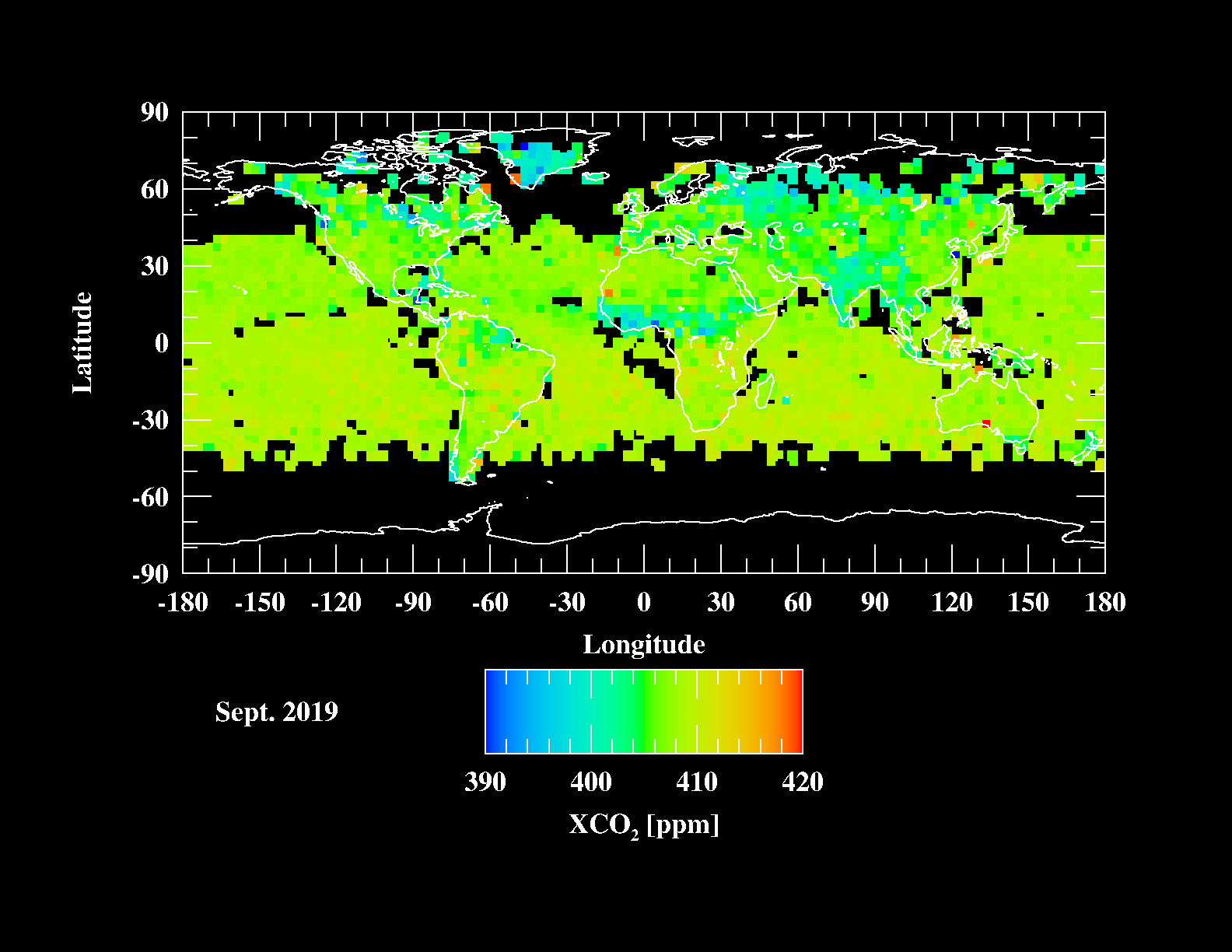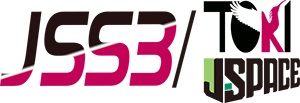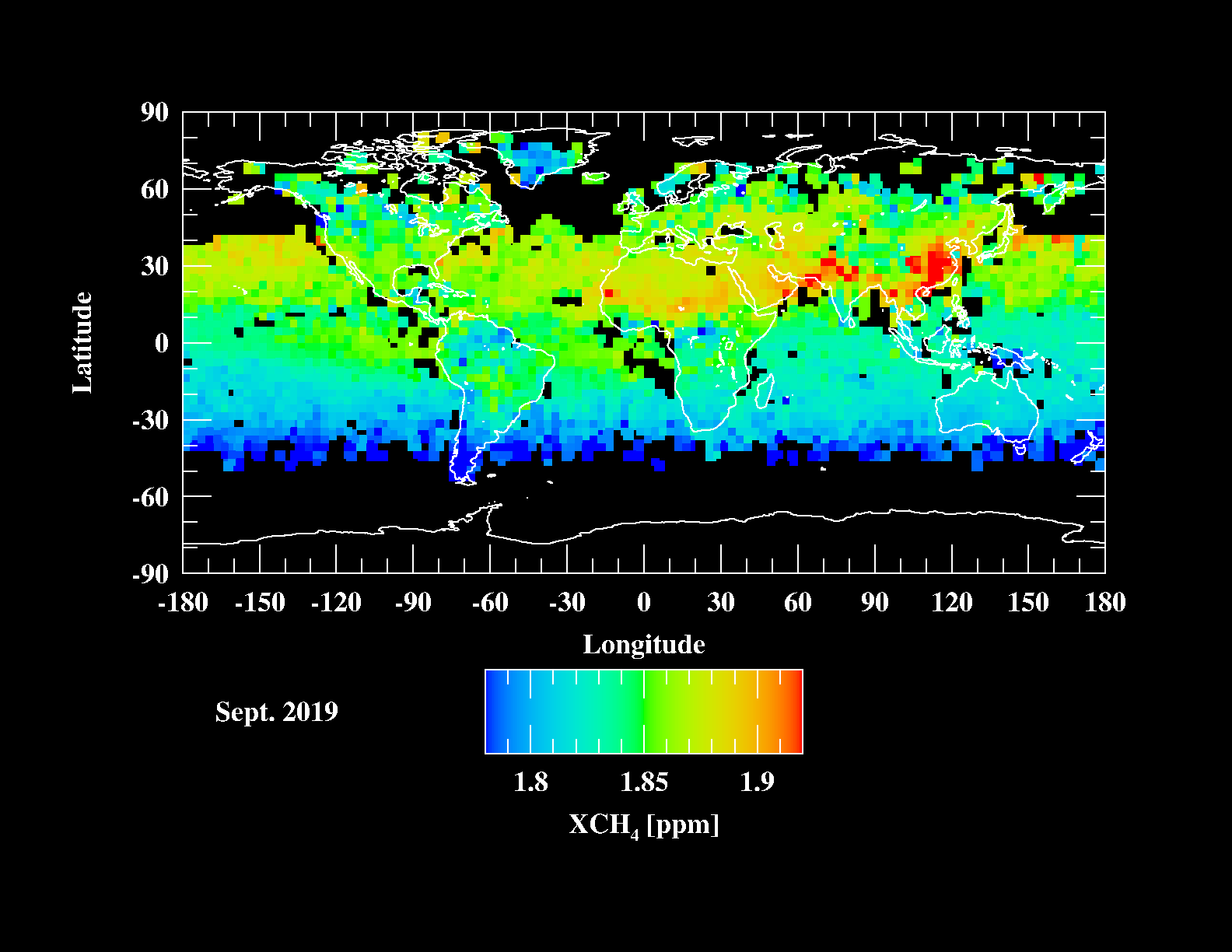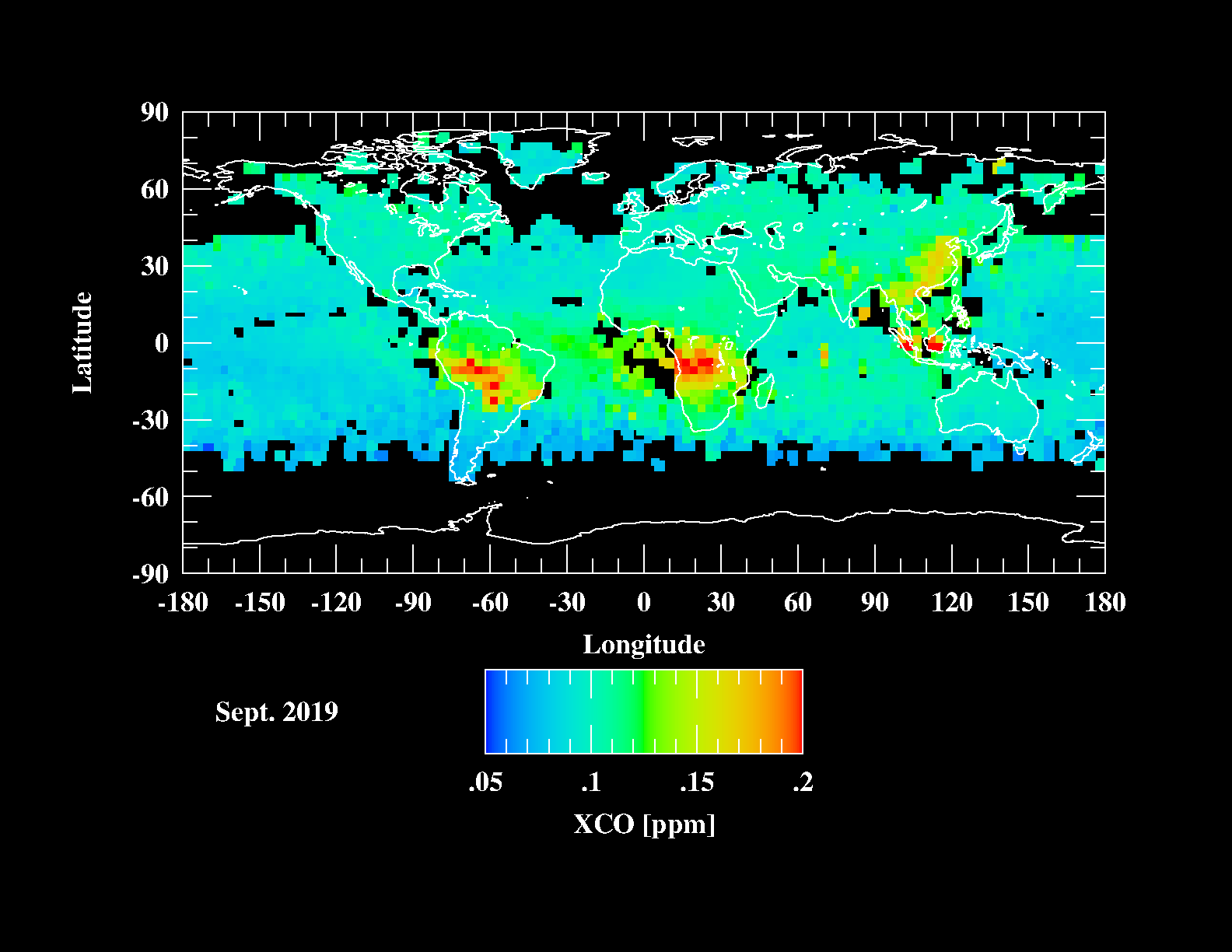Retrieval of greenhouse gas concentrations from GOSAT-2 observations
JAXA Supercomputer System Annual Report April 2019-March 2020
Report Number: R19ER3501
Subject Category: Space Technology
- Responsible Representative: KUZE Akihiko, GOSAT-2 Project Team, Space Technology Directorate I
- Contact Information: Nobuhiro Kikuchi (Earth Observation Research Center)(kikuchi.nobuhiro@jaxa.jp)
- Members: Kenji Kowata, Takehito Yoshida, Fumie Kataoka, Makiko Hashimoto, Shin Ishida, Tomoo Yamasaki, Hideyuki Noguchi, Nobuhiro Kikuchi
Abstract
Atmospheric concentrations of carbon dioxide, methane and carbon monoxide are retrieved from hyper sectral data measured by The Greenhouse Gasea Observing Sattelite 2 (GOSAT-2). Develepment, validation and imprivement of the retrieva algorithm are also carried out.
Reference URL
N/A
Reasons and benefits of using JAXA Supercomputer System
The JAXA supercomputer system is used to retrieved greenhouse gas concentrations from measurement data of the GOSAT-2 satellite. About 100 hours of CPU time is needed to process 1day mesurement data. It takes about 1 hour to process 1 day measurement data, using 10 nodes of the PrePost system computers with 12 cores.
Achievements of the Year
GOSAT-2 was launched in October 2018, and the measurement spectral data (Level 1 data) have been released since August 2019. We are developing the JAXA/EORC research algorithm (Level 2 algorithm) which derives from the Level 1 data the atmospheric concentrations of carbon dioxide, methane and carbon monoxide. GOSAT-2 has an advantage that it has spectral windows in both shortwave infrared (SWIR) to measure the solar-reflected spectra and the thermal infrared (TIR) to measure the thermal emission spectra from the atmosphere. The goal of our level 2 algorithm is to retrieve vertical profiles of carbon dioxide and methane concentrations in the troposphere with up tp 2 layers by using the SWIR and TIR measurements in combination, and thereby to improve the accuracy of the estimates of greenhouse gas emission. In this year, we retrieved column averaged concentrations of carbon dioxide, methane and carbon monoxide from the SWIR. Figure 1 shows the monthly mean of the column averaged concentrations of carbon dioxide in September 2019. Similarly, Figure 2 and 3 show the monthly mean of methane and carbon monoxide concentrations, respectively. Our next plan is to include TIR measurements in our level 2 algorithm to derive vertical profiles of carbon dioxide and methane.

Fig.1: Monthly mean of the column averaged concentrations of carbon dioxide in September 2019 derived from the Level 1 data of GOSAT-2.
Publications
N/A
Usage of JSS2
Computational Information
- Process Parallelization Methods: N/A
- Thread Parallelization Methods: OpenMP
- Number of Processes: 1
- Elapsed Time per Case: 10 Hour(s)
Resources Used
Fraction of Usage in Total Resources*1(%): 0.13
Details
Please refer to System Configuration of JSS2 for the system configuration and major specifications of JSS2.
| System Name | Amount of Core Time(core x hours) | Fraction of Usage*2(%) |
|---|---|---|
| SORA-MA | 0.00 | 0.00 |
| SORA-PP | 307,881.14 | 1.99 |
| SORA-LM | 0.00 | 0.00 |
| SORA-TPP | 0.00 | 0.00 |
| File System Name | Storage Assigned(GiB) | Fraction of Usage*2(%) |
|---|---|---|
| /home | 35.29 | 0.03 |
| /data | 49,533.87 | 0.85 |
| /ltmp | 7,226.57 | 0.61 |
| Archiver Name | Storage Used(TiB) | Fraction of Usage*2(%) |
|---|---|---|
| J-SPACE | 0.00 | 0.00 |
*1: Fraction of Usage in Total Resources: Weighted average of three resource types (Computing, File System, and Archiver).
*2: Fraction of Usage:Percentage of usage relative to each resource used in one year.
JAXA Supercomputer System Annual Report April 2019-March 2020




